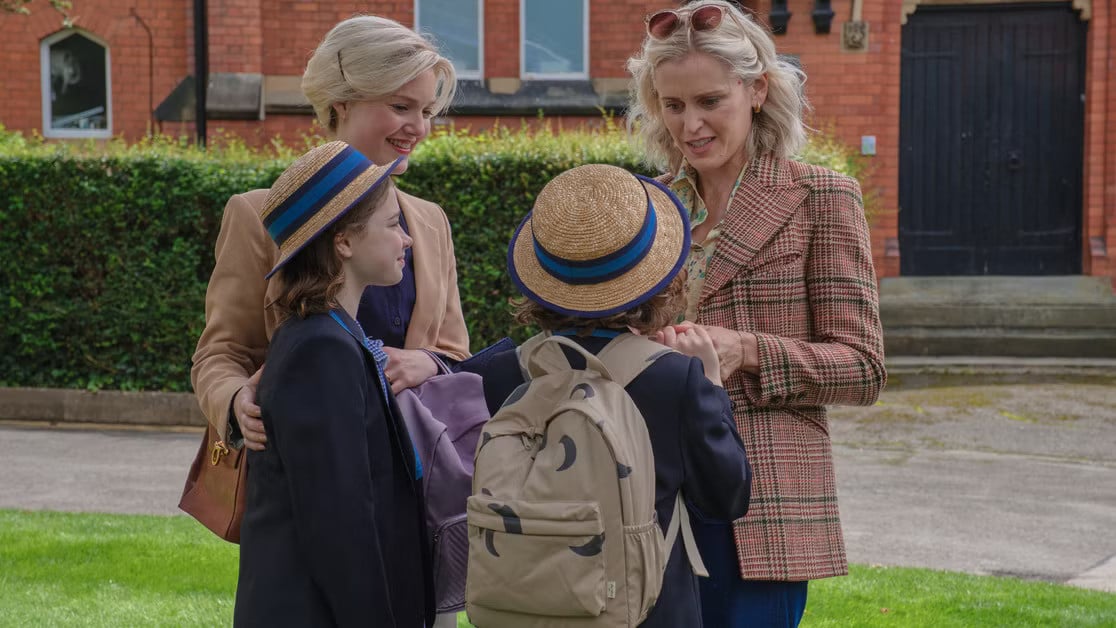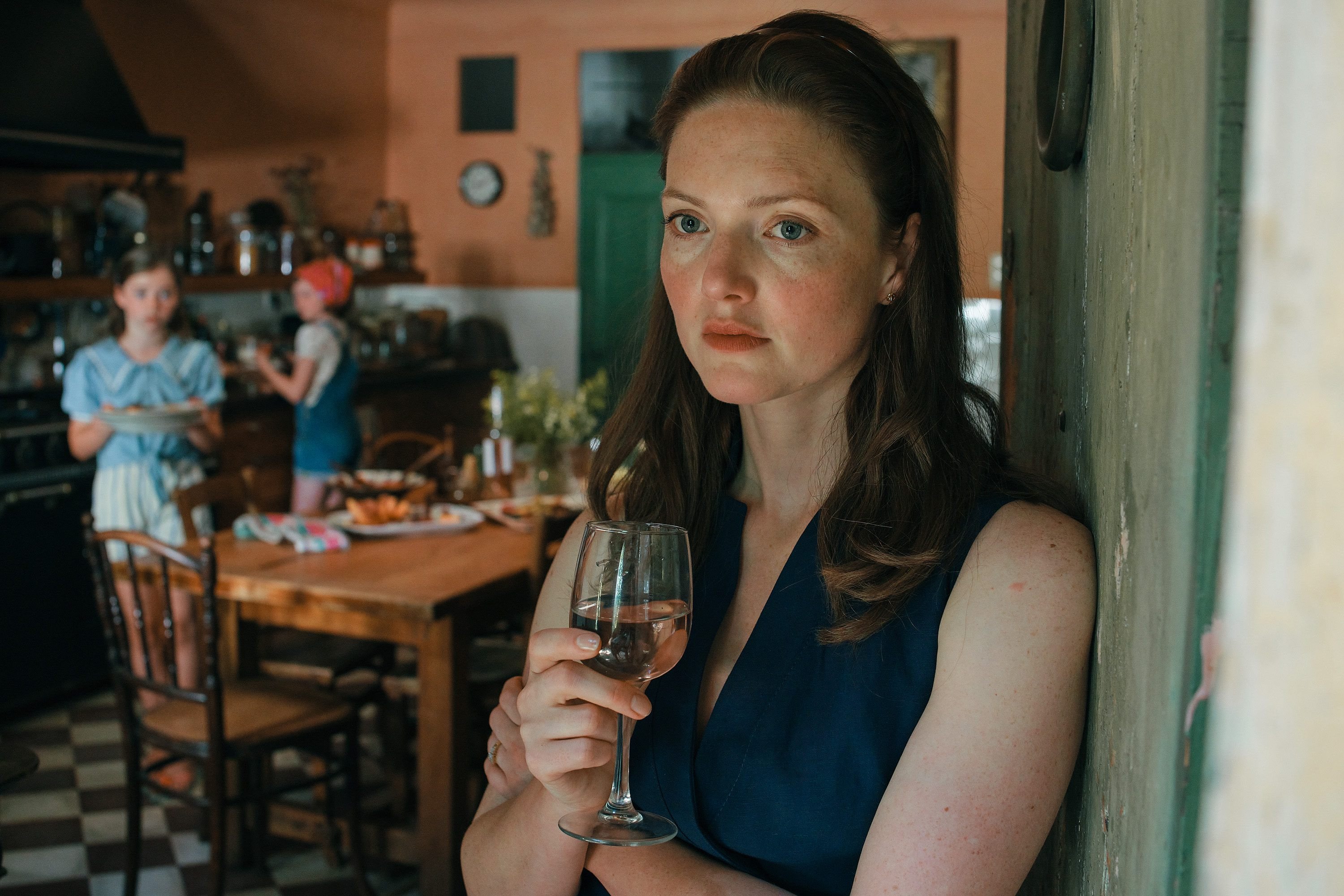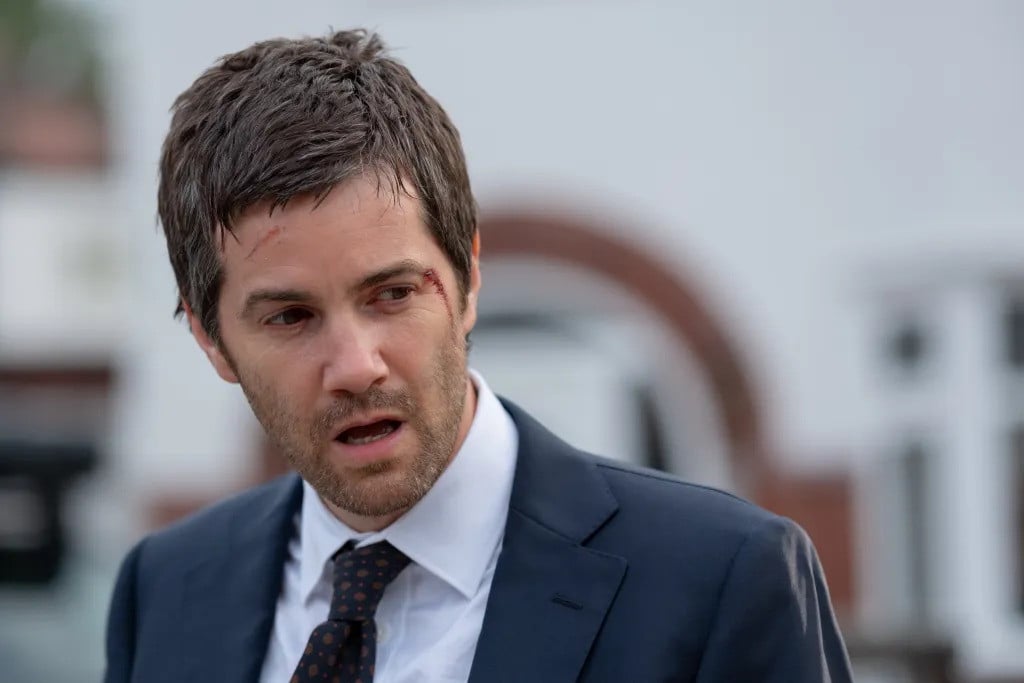
SLOUGH, ENGLAND:
There are shows that hook you from the opening thirty seconds, and others that are so repellent from the outset that you need to take refuge in a dark sensory room. Netflix whodunnit The Residence, for example, slots into the former division, and anyone who spent a childhood studying the ripped pages of Archie comics would be the first to tell you that Riverdale takes the crowning glory in the latter. Disney+ thriller The Stolen Girl, however, occupies neither bracket.
Instead, this thriller packed with nonsensical there-for-the-hell-of-it twists (picture a screw made out of playdough molded by a three-year-old) falls into that other overlooked but nevertheless appreciated TV category: background noise. If you are on the hunt for something you can nap along to on the sofa but lack the energy to go upstairs to bed like a sensible person, congratulations. The Stolen Girl is the answer to a tired insomniac’s prayers.
Been there, done that
Containing slightly less charm than radio static, this utterly forgettable thriller, adapted from the novel Playdate by Alex Dahl, is billed as every parent’s worst nightmare. Spanning five episodes, The Stolen Girl circles around a girl who is, well, stolen. Denise Gough (Anora) stars as Elisa, our designated irresponsible mother, although she won’t like you calling her that.
Elisa is careless enough to allow her nine-year-old daughter, Lucia, to attend a sleepover after befriending a suspiciously friendly white-blonde woman calling herself Rebecca (Holliday Grainger from Strike). The charming Rebecca, too, has a daughter the same age as Lucia, and one thing leads to another, with Elisa agreeing to let her daughter spend the night at Rebecca’s – a move she will heartily regret for the remainder of the show.

For any mothers who are already wary of overly chatty women at the school gates, The Stolen Girl is an excellent example of why they are not to be trusted. Sadly for Elisa, Rebecca has an agenda of her own that, at this stage, she has declined to share with the audience. For now, all we know is that she has put a devious plan in motion to whisk Lucia far away from her family for reasons best known to herself. She offloads most of the heavy lifting to a dodgy builder-like man, who, fortunately for an otherwise uninspired police force, ends up being incompetent enough to be filmed at a key location on CCTV.
Whether Rebecca does this just for kicks or because she has taken a particular dislike to Elisa is something that will become clear later on, but do not worry if you give in to that insomnia and miss most of the explanation. Also, do not be alarmed, on waking, to learn that Rebecca is now called Nina, has transitioned to a brunette, and speaks fluent French. Yes, she is leading a double life.

Yes, she knows a thing or two about kidnapping. No, she does not always pick the best henchmen. Yes, she knows how to dispose of said problematic henchmen. Yes, she has her reasons. No, her method of coping is not really what a trained therapist would recommend. Yes, Elisa deserves everything headed her way. In short, there is nothing here that hasn’t already been done scores of times in any Harlan Coben thriller (in either book or screen format) about a murky past catching up with you.
Any redeeming qualities?
In terms of plot, the short answer is: no. As is standard practice in this special brand of fiction involving criminals who abscond with children, there is not a single police officer with any imagination or initiative. Of course, fans of thrillers and crime fiction already know that to expect big brains from a police force is like having a pigeon fly in through an open window and expecting blind obedience when you tell it to go away. In other words, you would have better luck turning lead into gold. In the opening episode of Sherlock, for example, Benedict Cumberbatch’s titular character outrightly accuses one particular detective of lowering the IQ of the whole street.
Whilst the police force in The Stolen Girl may not be as blatantly dim as the policeman that so irked Sherlock, they are still slow (or at the very least, unmotivated) enough to be outwitted by outwitted by young Selma, a journalist who is who is brown, female and homosexual, ticking three diversity boxes in one fell swoop.

Selma’s will to live is being sapped away by having to cover news stories about errant pigs. However, duller than dishwater work has not diminished this journalist’s spark, and her antenna begins to twang after she espies Elisa’s repeated appeals on Instagram to help find her daughter. Selma decides, on the basis of Elisa’s lack of social media presence up until a few years prior, that something is “off” about her. The lesson to be learned here is that if you also never bothered to create an Instagram account because you don’t see the point, you, too, may find yourself at the mercy of a journalist bored out of her mind after writing pig-related content.
And so, Selma begins her investigation, carrying out a simple reverse Google image to identify a key piece of evidence, which is not something that occurs to anyone on the investigative team. Does she succeed? Is Elisa reunited with Lucia? Does Rebecca/Nina get her comeuppance? Does Selma ever get promoted?
By all means, take the plunge and find out for yourself, but please do not fall for IMDb reviewers in raptures about the “twists and turns” and “pivotal role of a journalist” or a “layered script”. There is no soundtrack that will lodge itself into your head, nor any characters whose decisions make any sense. The actors do the best they can with the material they have been given. You haven’t got a hope of figuring out any of the twists for yourself, so at least the burden of trying to unravel the plot on your own is taken off you.

For the shallow brigade out there, there is one small glimmer of hope here, and that is Jim Sturgess, who plays Fred, Lucia’s father and Elisa’s criminal lawyer husband. If you are plagued by the repeated thought that the painfully confused-looking Fred resembles a boyband lead singer far more than a member of the legal profession, you are not entirely wrong.
Sturgess’ other claim to fame is playing Jude in Across the Universe (2007), whence he spent much of his screen time serenading his lady love of choice with Beatles songs and one cock of an eyebrow. Sturgess appears to have aged barely a week since his Jude days, and if we can get our hands on whatever anti-ageing potion he is on, all is not lost.
Have something to add to the story? Share it in the comments below.




